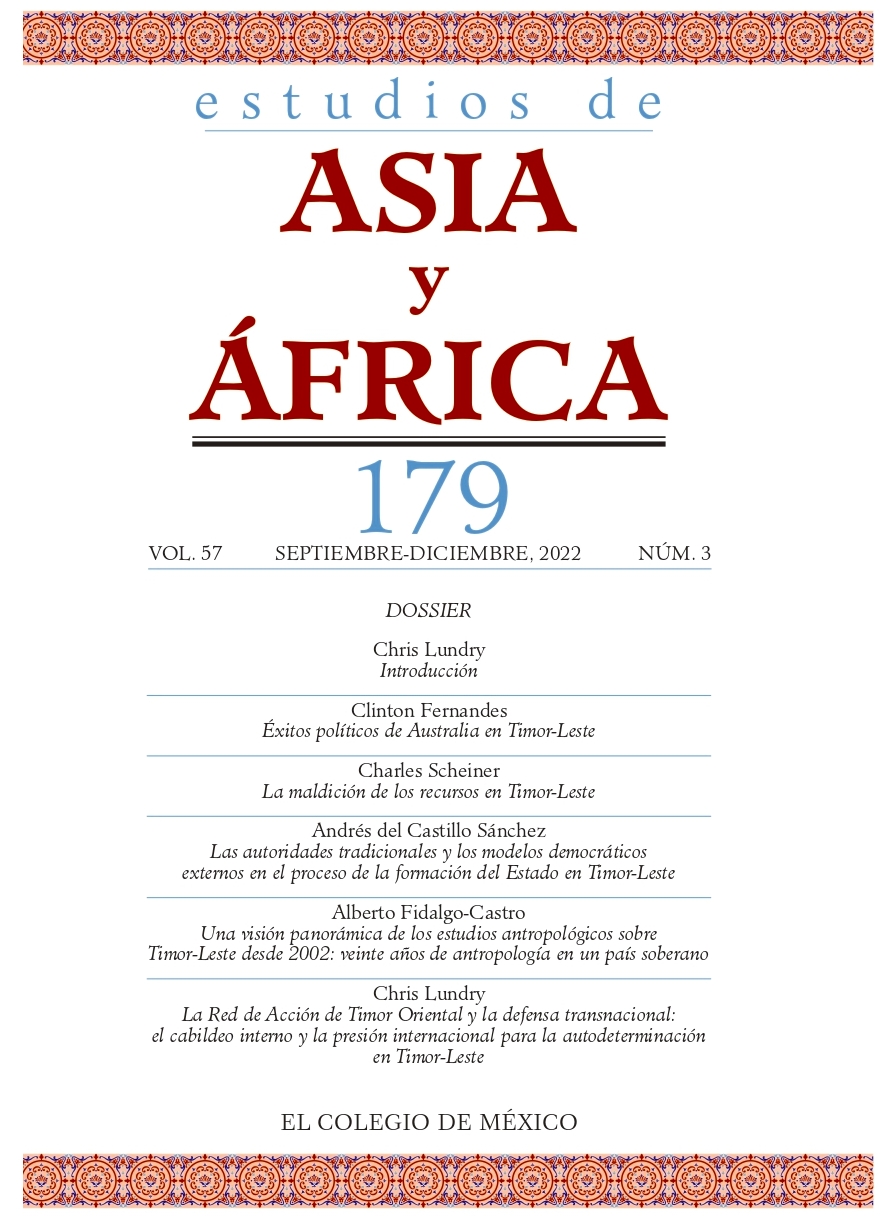Abstract
This article presents the role of traditional and community authorities in Timor-Leste during the period of political transition from 1999 to the restoration of independence in 2002 and the first years of independence. It focuses on the legislative and administrative strategies to create a national electoral system trying to incorporate (or not) the traditional structures, specifically: the councils of Katuas (elders), the Suco councils, the Lian Nain and the Liurais in the democratic system of the nascent country and especially in the local and territorial administration. The political strategies and social dynamics in the formation of the electoral system and the modality that was chosen to incorporate the traditional authorities into the governmental power system are explained. A reflection is made on the different stages of the construction of the electoral system in the country in the successive elections of 1999, 2001, 2002, 2004/2005 and its relationship with traditional organizational systems. Some of the conflicts that arose when implementing imported systems that are alien to the cultural reality of the country are highlighted. This article is based on the experience of the author in Timor-Leste between 1999 and 2018 and the examination of legal and documentary sources.
References
Babo Soares, Dionísio. 2004. “Nahe Biti: The Philosophy and Process of Grassroots Reconciliation (and Justice) in East Timor”. The Asia Pacific Journal of Anthropology 5 (1): 15-33. https://doi.org/10.1080/1444221042000201715
Del Castillo, Andrés. 2003. “Loro Sae, allá donde nace el sol, historia de la construcción de la identidad nacional de Timor-Leste”. Tesis de maestría, El Colegio de México.
MAE (Ministério da Administração Estatal). 2004. Diploma ministerial 3/2004 “Sobre a Estrutura, Organização, Composição e Funcionamento do Secretariado Técnico de Administração Eleitoral”. http://mj.gov.tl/jornal/public/docs/2002_2005/diplomas_ministerial/3_2004.pdf
MAEOT (Ministério da Administração Estatal e Ordenamento do Território). 2009. Diploma ministerial 199/GM/MAEOT/IX/09 “Que fixa o número de Sucos e Aldeias em Territorio Nacional”. Jornal da República 1 (33): 3588-3620. http://mj.gov.tl/jornal/public/docs/2009/serie_1/serie1_no33.pdf
Pram. 2013. Suku Bangsa Dunia dan Kebudayaannya [Los pueblos del mundo y su cultura]. Yakarta: Cerdas Interaktif.
UNMIT-SCIT (United Nations Mission in Timor-Leste-Serious Crimes Investigation Team). 2009. “Serão os Timorenses a escolher se querem usar a Justiça Tradicional”. SCIT 5: 1-2. https://unmit.unmissions.org/sites/default/files/scit_newsletter5_041209por_jd.pdf
UNTAET (United Nations Transitional Administration in East Timor). 2000. UNTAET regulamento 2000/13 “Sobre a criação de conselhos de suco e de posto para o desembolso de fundos para actividades de desenvolvimento”, 10 de marzo de 2000. http://mj.gov.tl/jornal/lawsTL/UNTAET-Law/Regulations%20Portuguese/Reg2000-13por.pdf

This work is licensed under a Creative Commons Attribution-NonCommercial-NoDerivatives 4.0 International License.
Copyright (c) 2022 Estudios de Asia y África


